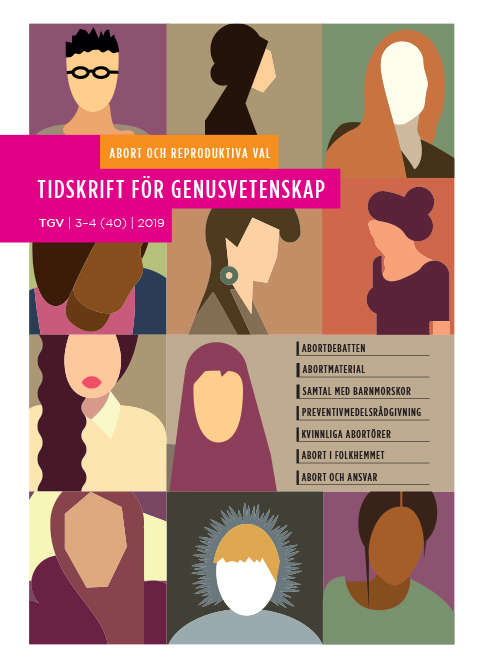Abortören är en kvinna
Om Helga, lagen och skammen i det svenska 1940-talet
DOI:
https://doi.org/10.55870/tgv.v40i3-4.2638Nyckelord:
illegal abort, kvinnors kriminalitet, skamAbstract
In 1942, a rather ordinary middle-aged woman named Helga was sentenced to hard labor for two years and six months. She had performed thirteen illegal abortions on eleven women, and one of them, Elsa, had died. This article focuses on female illegal abortionists in Sweden in the 1940s, using Helga as its foremost example. Helga’s background was working-class and she had no formal medical education. She appears to have been a well-adjusted person: a woman with a business education who ran a cafe and a tobacco shop, a middle-aged divorced mother with two adult children. Helga was not an exception – a study from 1944 shows that several female illegal abortionists had educations and jobs. But in public debate, illegal abortionists were generally depicted as antisocial, dangerous quacks or psychopaths. Advocates for abortion reform as well as its opponents warned against the so-called quacks or lay abortionists. A question in the article is if and how abortion and crime were linked to feelings of shame. Many unmarried pregnant women applied for legal abortions on the grounds that they would incur shame and dishonor if they bore children out of wedlock, but their applications were turned down. Elsa, the woman who died after having an abortion performed by Helga, had had strong feelings of shame because of her unwanted pregnancy and perhaps also her illegal abortion. But the sources indicate that the other women accused of having illegal abortions were not ashamed, and instead found their abortions necessary and morally right. It seems plausible that Helga found her abortion business legitimate and right, at least until the death of Elsa and the trial that followed.
Nedladdningar
Downloads
Publicerad
Referera så här
Nummer
Sektion
Licens
Författaren/författarna behåller copyright till verket.





